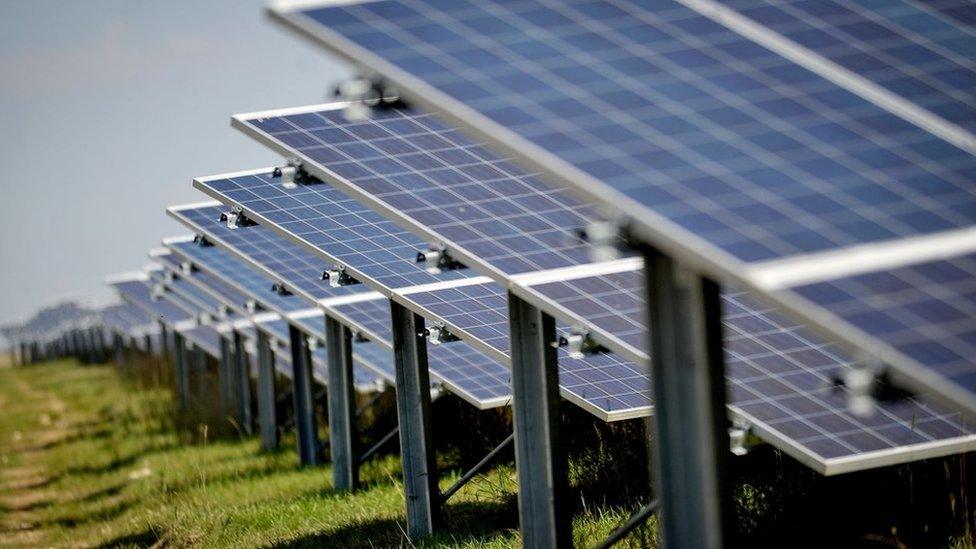What is the plan for the solar farm that spans two counties?
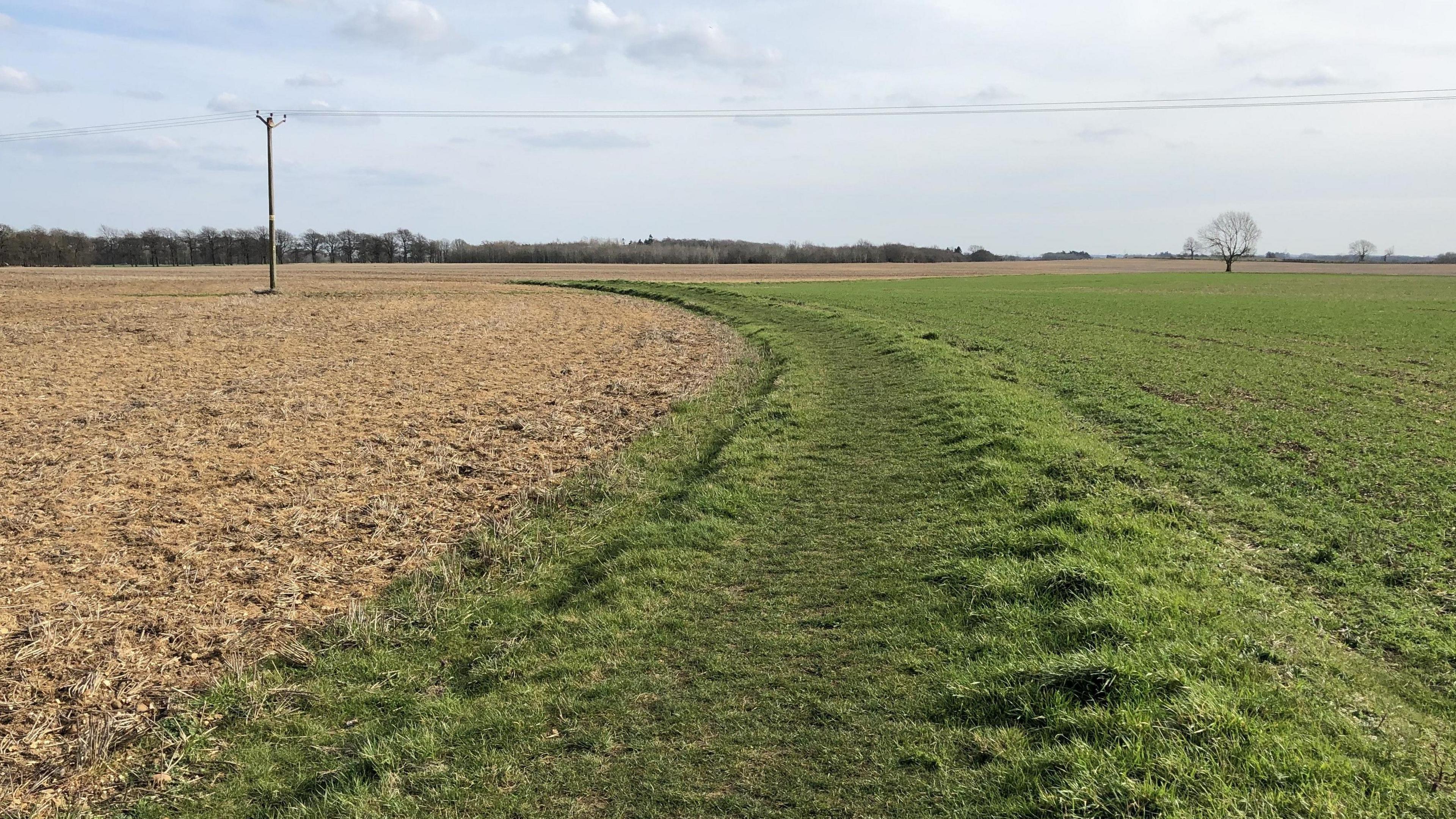
The Mallard Pass solar farm will be situated on more than 2,000 acres of agricultural land on the Rutland-Lincolnshire border
- Published
The new Labour government has made its intentions around solar power clear - with three major projects across England approved within days of Sir Keir Starmer coming into power.
Ed Miliband, the new secretary of state for energy security and net zero, has told, external the Commons this is part of the government's aim to make Britain a "clean energy superpower".
The Mallard Pass solar farm - on the Rutland and Lincolnshire border - is the one of the trio approved earlier this month.
But the scheme has not been short of detractors, with more than 3,000 people signing a petition opposing the scheme, arguing it would take up prime farmland.
So what exactly are the plans, and what could this mean for the future of energy in the UK?
What has been proposed?
The Mallard Pass solar farm will be situated on more than 2,000 acres (8sq km) of agricultural land, either side of the East Coast Main Line.
It will sit to the north of Stamford, Lincolnshire, at the village of Essendine in Rutland.
The site is 4.2 miles (6.76km) from end to end, and covers the equivalent of nearly 1,400 football pitches.
It is expected to generate in the region of 350 megawatts (MW) of renewable energy a year, enough to power an estimated 92,000 homes over a 30-year period.
The solar panels would be about 11ft (3.3m) high, with the farm set to operate for up to 60 years.
There is already a substation on the site that allows the solar farm to connect with the National Grid.
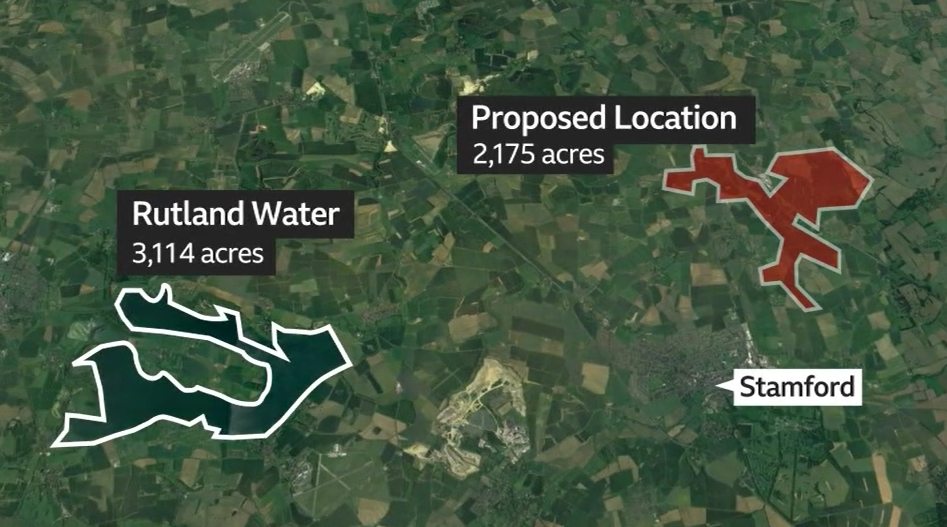
The scale of the Mallard Pass site, compared to nearby Rutland Water
How did the project develop over time?
It was announced on 4 November 2021, with the first public consultation running until 16 December of that year.
This prompted the Mallard Pass Action Group to form on 9 December 2021, with the aim of challenging the project.
Mallard Pass got its name due to its proximity to where Mallard broke the world speed record for a steam locomotive in 1938, reaching 126mph (202km/h).
According to the National Railway Museum, that record still stands.

Mallard made its last operational run on a commemorative journey between Doncaster and Scarborough in 1988 before entering museum preservation
The total number of solar panels were reduced after the first round of consultation, with a second stage running from 26 May to 4 August 2022.
On 21 December 2022, the Planning Inspectorate accepted an application for examination, meaning local authorities would not have the final say on the project, as it was deemed nationally significant.
The examination ran from May 2023 to November, with the inspectorate making its recommendation that developmental consent should be granted in February 2024.
A decision date was eventually set for 16 May this year, which was pushed back twice before it was approved by Mr Miliband on 12 July.
Who is behind the project?
The Mallard Pass solar farm has been developed by companies Windel Energy and Recurrent Energy.
The latter company is a subsidiary of Canadian Solar Inc., while Windel Energy, based in the UK, lists itself as a partner of the Canadian organisation.
The two companies also appointed a project team to provide support and expertise throughout the scheme's development.
Harry Wilder, head of business development for Recurrent Energy in the UK and Ireland, said although the site was more than 2,000 acres, 1,038 acres would be used for the solar farm, with the rest left for agriculture.
He said the planning inspectorate's recommendation to approve Mallard Pass was a "real validation that this project is the right project in the right place".
Why is a local MP 'appalled'?
There has been plenty of local opposition to the project, mainly due to the loss of agricultural land.
Alicia Kearns, Conservative MP for Rutland and Stamford, said she was "utterly appalled" that Mallard Pass had been approved.
She said the loss of farming land threatened the UK's food security, and questioned whether Mr Miliband had "engaged with the detail" or read all the documentation.
Ms Kearns told the BBC: "This is not nimbyism.
"This is people who care about food security, biodiversity and our communities.
"There has been no meaningful engagement with our communities."
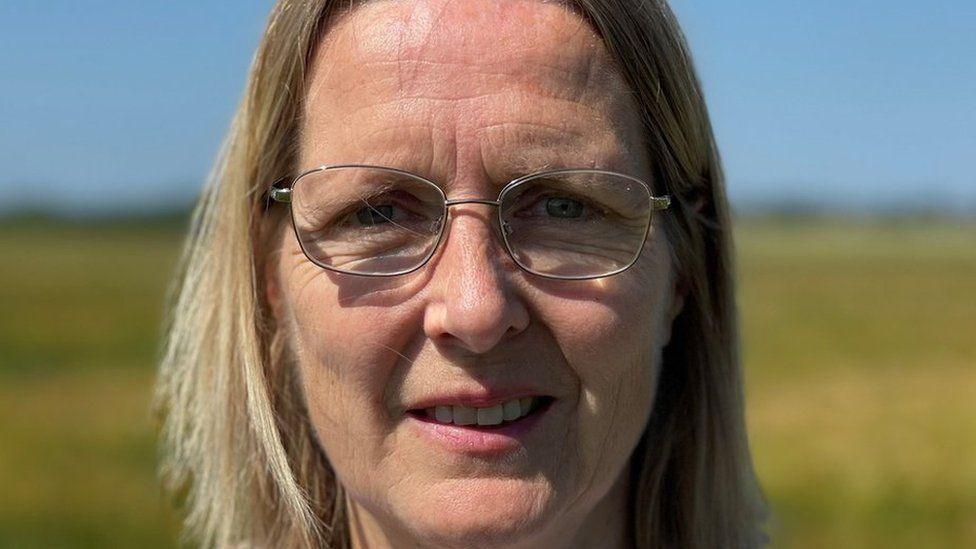
Sue Holloway has previously said she believes the solar farm should not be put on productive agricultural land
The resident action group created in response to the plans was led by Keith Busfield, who previously told the BBC the land proposed for the solar farm was a hotspot for nature including grass snakes, kingfishers and otters.
"All this will be potentially lost," he said.
Mr Busfield died unexpectedly in March 2022, and his partner Sue Holloway, chair of the group, said at the time they were even more determined to stop the solar farm.
Ms Holloway previously said that residents did not feel they had "much of a voice" in the matter, due to its national interest.
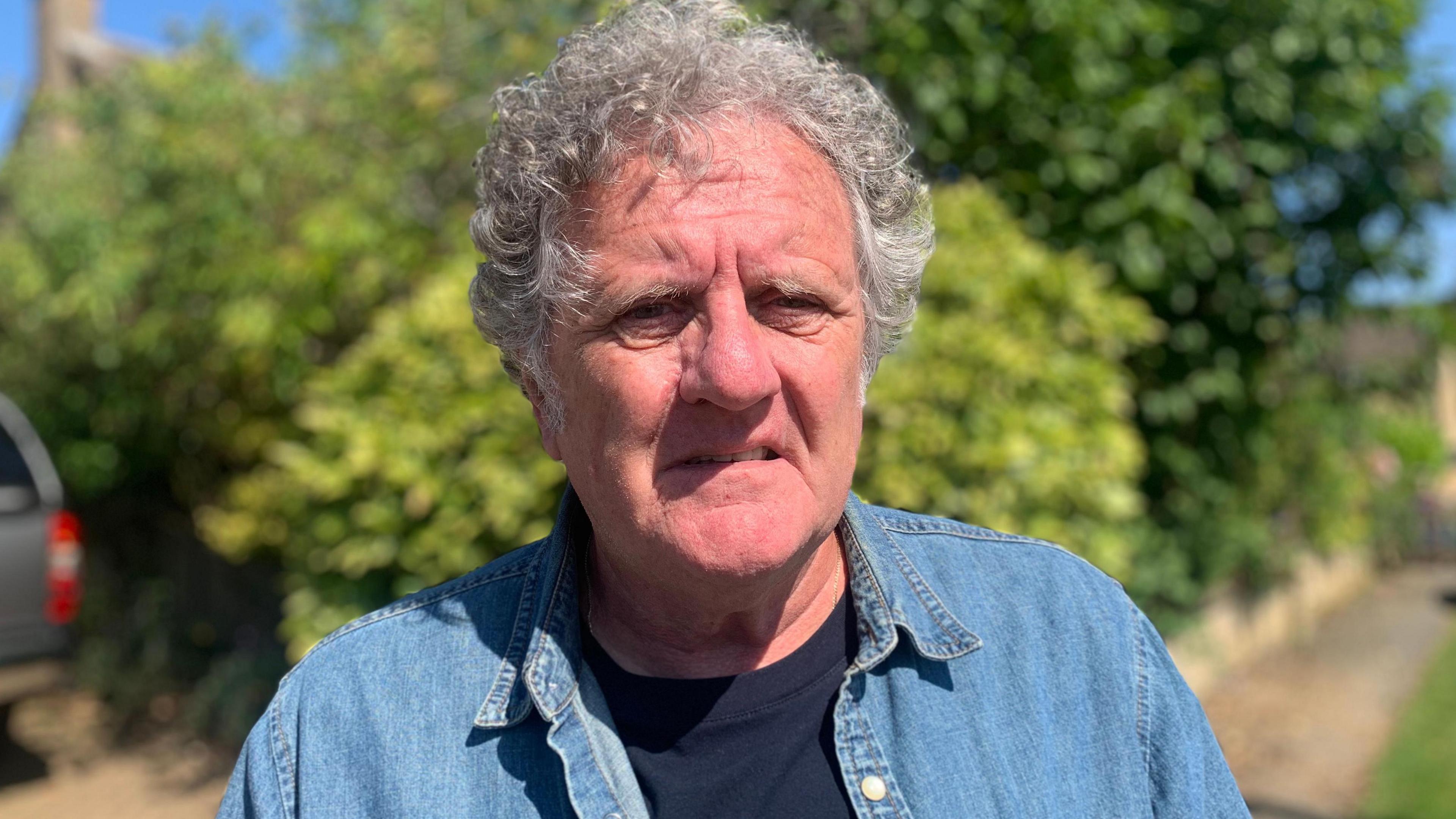
Tony Orvis says Mallard Pass is going to be "a huge development"
Tony Orvis, another member of the action group, said: "It’s going to cover the area from countryside to an industrial energy plant.
"We need solar farms, but do we need solar farms as big as this one?
"Do we need solar farms built on highly productive land?"
What are the government's green ambitions?
As well as Mallard Pass, two other major solar projects have been approved by the government.
Gate Burton in Lincolnshire, which is more than 1,690 acres in size, and Sunnica's 2,500-acre solar farm on the Cambridgeshire-Suffolk border were both given the green light by Mr Miliband.
Labour's manifesto included a pledge to make almost all of country's electricity to be UK-generated and zero carbon by 2030.
The government has also lifted the ban on onshore wind and is aiming to make it easier to add solar panels to new homes.
Mr Milliband said solar power was "crucial to achieving net zero".
"Some of these cases had been held up for months before I arrived in the department," he said.
"They were put on my desk on Monday and I’ve made a decision in three days.
"This is the speed we’re working at to achieve energy independence, cut bills for families and kickstart green economic growth.
"We will make tough decisions with ambition and urgency – all part of our plan to make the UK a clean energy superpower."
In a letter setting out the decision to approve Mallard Pass, deputy director for energy infrastructure planning David Wagstaff said Mr Miliband had considered all representations, and concluded the public benefits outweighed the harm identified.

Alicia Kearns MP says she is "sorry to all those who have campaigned so hard, for so long, and whose voices were flagrantly dismissed"
What happens now?
Following the decision, Ms Kearns said she would be "considering the next steps available to us, including judicial review".
She described the decision to approve the project as "a slap in the face for all those who value human rights, food security, upholding standards in business, and protecting our agricultural land".
Developers said in May 2023 that the construction phase is anticipated to take 24 months, and that the earliest start date would be summer 2026.
However, Mr Wilder said Recurrent could not currently give an exact start date.
Follow BBC Leicester on Facebook, external, on X, external, or on Instagram, external. Send your story ideas to eastmidsnews@bbc.co.uk, external or via WhatsApp, external on 0808 100 2210.
Related topics
- Published13 July 2024
- Published30 May 2024
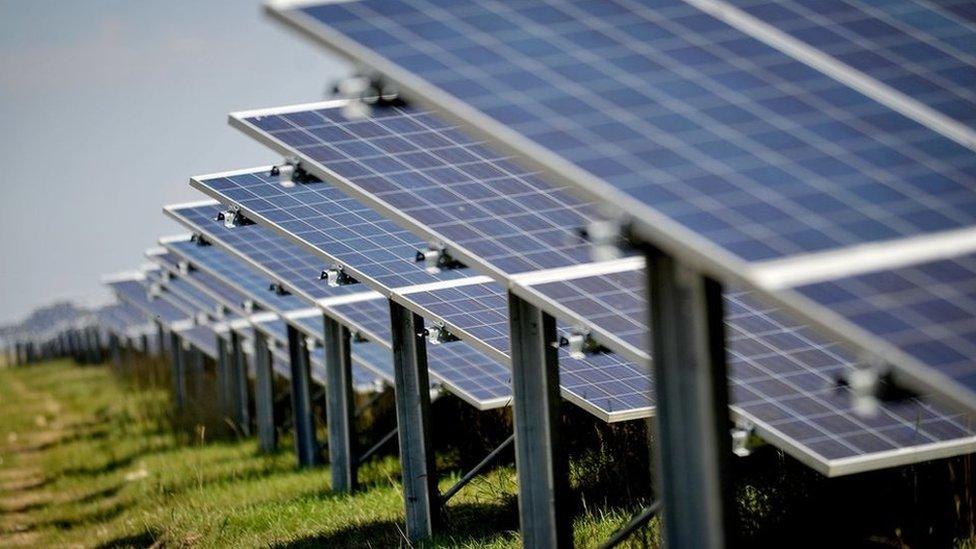
- Published21 July 2023
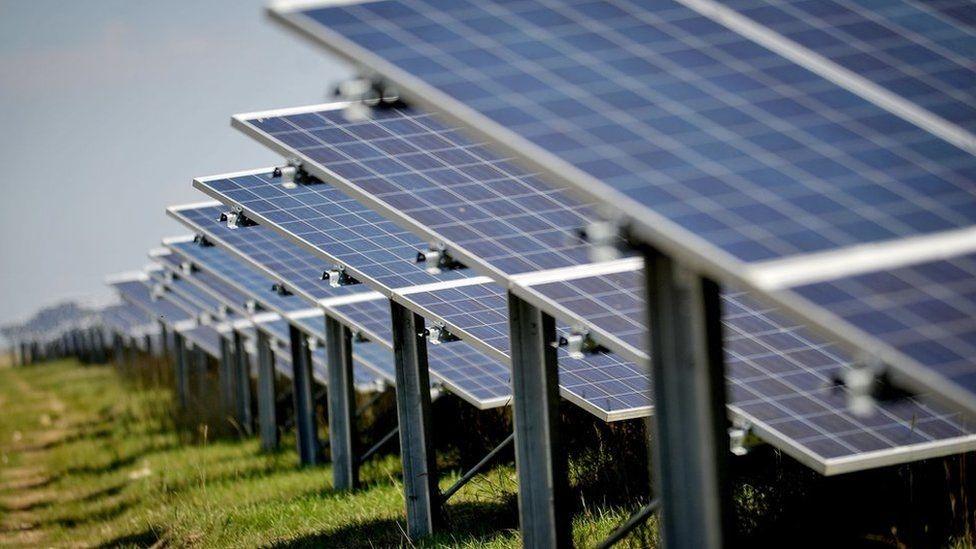
- Published7 January 2023

- Published8 April 2022
